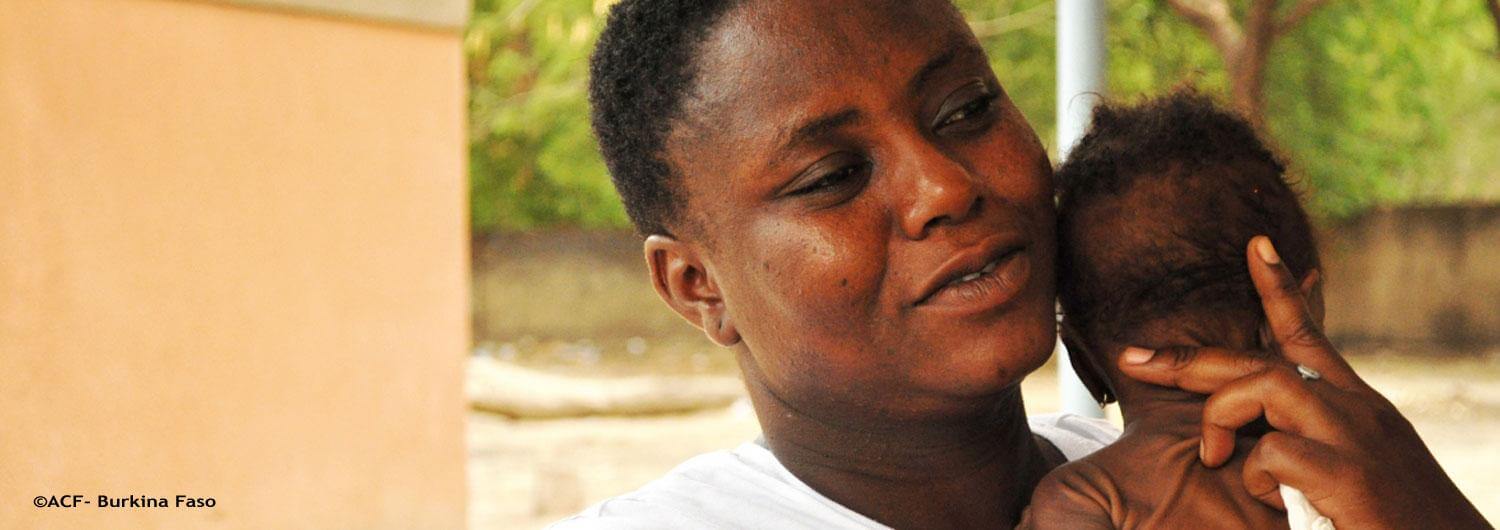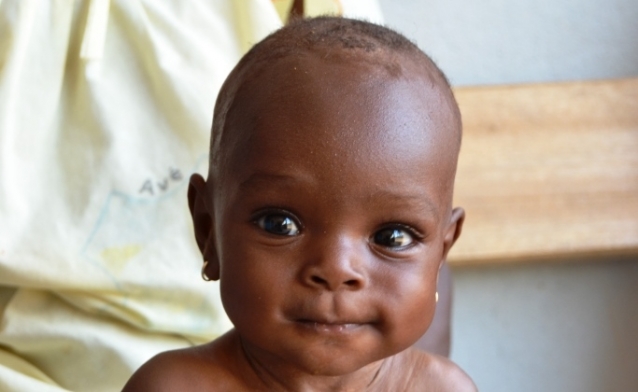News
Safety Nets for Vulnerable Children in Burkina Faso
22/12/15

At the age of four months, Helene Onadja had already experienced more trauma than many people undergo in their whole lives. Just a couple months after she was born, Helene lost her mother to a sudden illness. Stories like this are all too common in countries like Burkina Faso, where mothers and children under five lack access to adequate health care, especially during and after pregnancy, and in the first 1,000 days between pregnancy and a child's second birthday, when they are most vulnerable to undernutrition and other illnesses like malaria and pneumonia.
Helene’s grandmother, Lissoaba, became her caretaker. Without Helene’s mother, in desperation, Lissoaba bought her baby granddaughter sugared, concentrated milk sold at their local market in a village near the city of Fada-Ngourma, thinking it was an adequate substitute for breastmilk. That milk, not designed for an infant’s delicate system, caused Helene to suffer from severe diarrhea. She became dangerously dehydrated and severely malnourished.
The fight for Helene's life
“I didn’t even know if she would survive, her situation was so serious,” Lissoaba recalled. Some 40,000 children in Burkina Faso die each year from malnutrition—and Lissoaba refused to let Helene become one of them. Not knowing where else to go, she took Helene to a Catholic mission, where the priests knew to immediately refer Helene to the local health center, supported by Action Against Hunger, for an examination.
Action Against Hunger evacuated Lissoaba and Helene, free of charge, directly to a pediatric emergency unit at a hospital in Fada-Ngourma. Helene's situation was grave: our "Prevention, Detection, and Treatment" nutrition program, funded by the Swedish Agency for Development (SIDA), was designed to detect and ensure that acutely malnourished children like Helene in need of urgent, intensive, lifesaving emergency care can be quickly and safely transported to a facility where they can get appropriate treatment.
Looking ahead to a bright future
After she was hospitalized and her condition became more stable, our team transferred Helene to another inpatient treatment center for further care. Three weeks later, she was well enough to be discharged and admitted to an outpatient program, in which our teams and community health workers monitored her progress regularly. Helene's life was saved, thanks to her grandmother's efforts to seek care, and to our emergency referral and treatment programs.
Her grandmother, like other caretakers staying at the inpatient health center, also benefited by receiving free meals. The atmosphere was caring and supportive, and encouraged a strong sense of solidarity amongst the mothers and other caretakers. Many of them expressed worry, mostly about how to keep their children healthy after being discharged. Ongoing education about care and feeding practices and ongoing check-ins are part of our process for ensuring children and their caretakers do not fall back into the danger zone.
Our teams in Burkina Faso, and around the world, work hard to empower families so they understand where and how to seek care when they see the warning signs of undernutrition, and we share knowledge that helps them put good nutrition practices into action after they return home.Helene recovered beautifully by her six-month birthday, and now has a great appetite. Helene responded well to her treatment and has recovered. Today, she is energetic and often shows her beautiful smile.

When Helene was ready to be discharged, her grandmother got sick with conjunctivitis and malaria. The health center staff decided both grandmother and granddaughter should stay on, resting comfortably to ensure both would leave in good health. It’s just one example of our field teams going above and beyond the call of duty to help families overcome their obstacles and thrive. Now, the future looks bright for Helene and her loving grandmother.